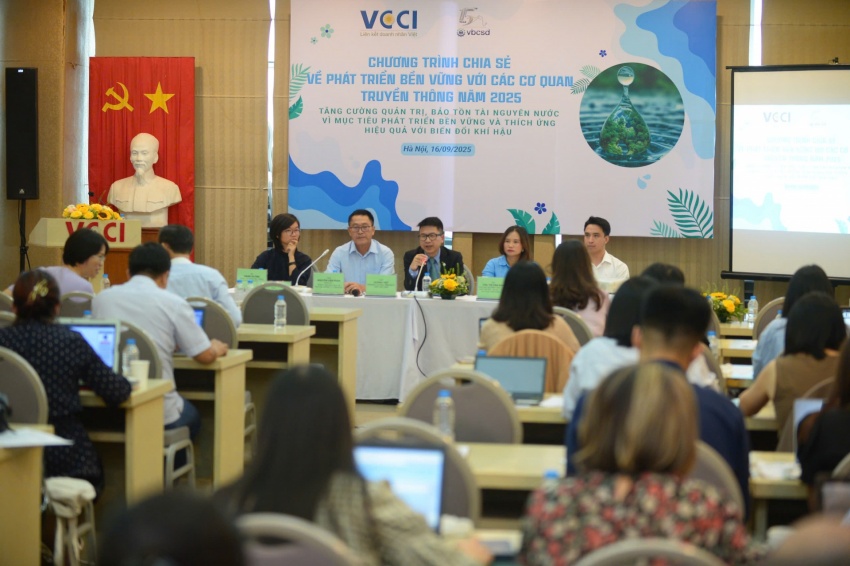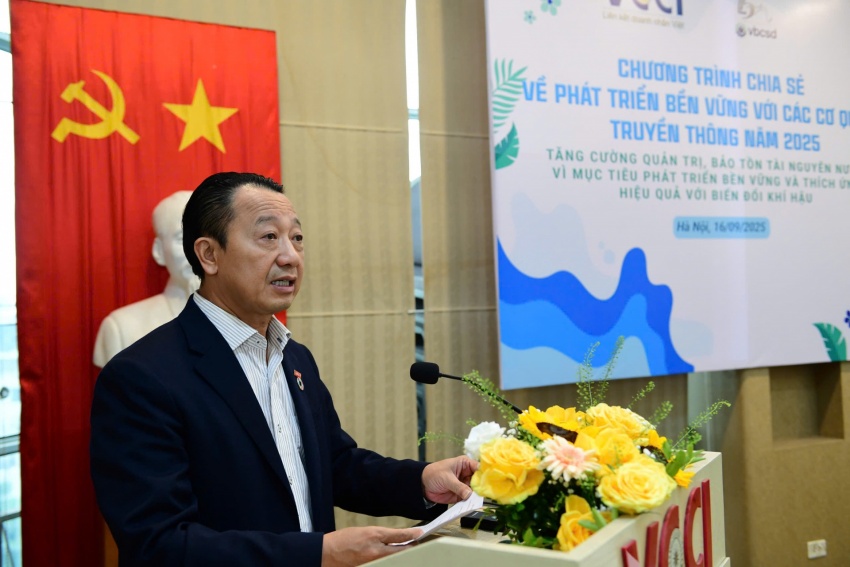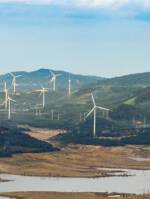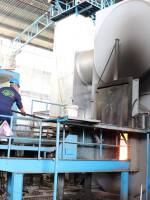
On September 16, the Vietnam Business Council for Sustainable Development (VBCSD), under the Vietnam Chamber of Commerce and Industry (VCCI), held its eighth annual media engagement programme on sustainable development.
This year’s theme was “Strengthening governance and conservation of water resources for sustainable development and effective climate change adaptation”. Nearly 70 representatives from VBCSD members and media agencies covering sustainability issues attended.
The programme featured a seminar providing updated insights into sustainable water governance, and a site visit to Coca-Cola Vietnam’s Hanoi plant.
Water is the lifeblood of the economy and society, from agriculture and industry to daily life and services. Access to clean water is also central to achieving Sustainable Development Goals (SDGs) 6 (clean water), 12 (sustainable consumption and production), and 13 (climate action). Vietnam’s total surface water resources are estimated at 830–840 billion cubic metres per year, while groundwater reserves are around 47.5–63 billion cubic metres annually.
However, only about 37 per cent of available water originates within Vietnam’s territory, with more than 60 per cent dependent on transboundary flows. This makes the country highly vulnerable to climate change and cross-border impacts. While legal frameworks such as the Water Resources Law (2012, amended in 2023) and river basin planning are in place, enforcement and cross-sectoral cooperation remain weak.
“Water governance is vital for economic development, energy security, and social stability. In this context, businesses play a critical role in conserving and using water resources effectively. Many enterprises in Vietnam are pioneering sustainable water management initiatives—improving water efficiency, reusing, and replenishing water in operations. Yet, small- and medium-sized enterprises often lack financial capacity, technology, and policy support to keep pace. Stronger policy frameworks, financial backing, and especially the media’s role in raising awareness and connecting communities are needed,” stressed Nguyen Quang Vinh, vice chairman of the VCCI and chairman of VBCSD, in his opening remarks.

Hoang Viet, director of WWF-Vietnam’s Water Program, emphasised that water is not just a natural resource but the foundation for food, energy, and livelihoods for millions of people. In the face of climate change, unsustainable exploitation, and pollution, water scarcity and security risks are intensifying. “This requires a more holistic and science-based approach to managing this essential resource. The WWF believes water security can only be ensured through joint efforts by government, businesses, communities, and the media,” he noted.
The WWF highlighted effective tools such as the Water Risk Filter and the Water Stewardship framework, which help businesses and localities in Vietnam identify risks, adapt proactively, and generate sustainable value from water resources rather than viewing them solely as an input cost.
Nguyen Huu Hoang, head of sustainability at Heineken Vietnam, underscored that water and nature conservation are top priorities in the company’s sustainability strategy. Through various initiatives and partnerships, Heineken Vietnam achieved water balance at the Tien River basin five years ahead of schedule, a basin facing significant water stress.
“This achievement marks an important milestone in our sustainability journey ‘For a Better Vietnam’. It clearly demonstrates the power of collective action between businesses, government, civil society, and communities in addressing environmental challenges. It also inspires us to continue contributing to Vietnam’s sustainable development,” Hoang highlighted.
In the afternoon, VBCSD organised a field trip to Coca-Cola Vietnam’s Hanoi factory. Since 1994, Coca-Cola has served Vietnamese consumers with three production plants in Hanoi, Danang, and Tay Ninh, supported by a nationwide supply chain.
In July, Coca-Cola Vietnam inaugurated a new plant in Tay Ninh with a total investment of $136 million and a designed capacity of over 1 billion litres of beverages annually. The facility features modern production lines meeting both international and Vietnamese food safety standards, and applies advanced automation technology to improve resource efficiency while minimizing environmental impact. This new factory further reinforces Coca-Cola’s commitment to supporting Vietnam’s sustainable growth and achieving net-zero emissions by 2050.
Nguyen Thu




